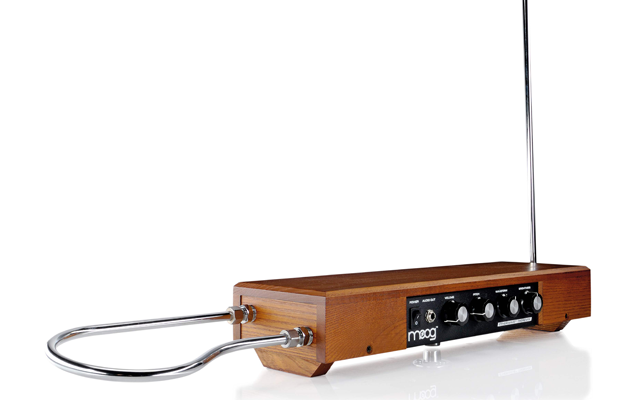Ten Less Common Musical Instruments to Learn
Most people who start learning a musical instrument go for something like the guitar, piano or violin. There are very good reasons why these are so popular, but if you want to stand out from the crowd, there are many less common options. Here are ten of them.
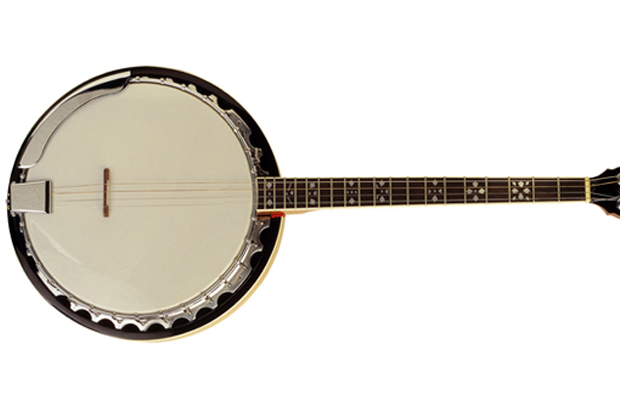 |
Banjo The banjo is less popular than it used to be, but it's making a comeback. In origin an African American instrument that probably derives ultimately from West Africa, its various forms (such as five-string banjo and tenor banjo) are used for everything from bluegrass to Irish folk. Its distinctive sound makes the banjo a great alternative to the guitar as an accompanying instrument. |
|
Bagpipes Most of us think of bagpipes as Scottish, but actually there are many types in the British Isles and across Europe. Although not an easy instrument to learn, with its combination of melody and drone pipes, playing the bagpipes doesn't have to mean wandering over Scottish moors. Its various types are used in folk and world music, while they've even turned up in heavy metal bands. |
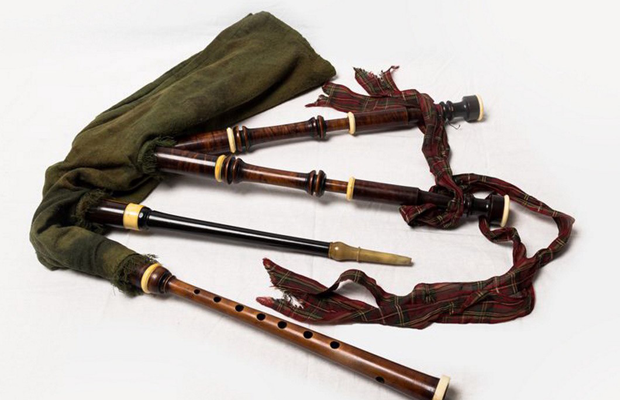 |
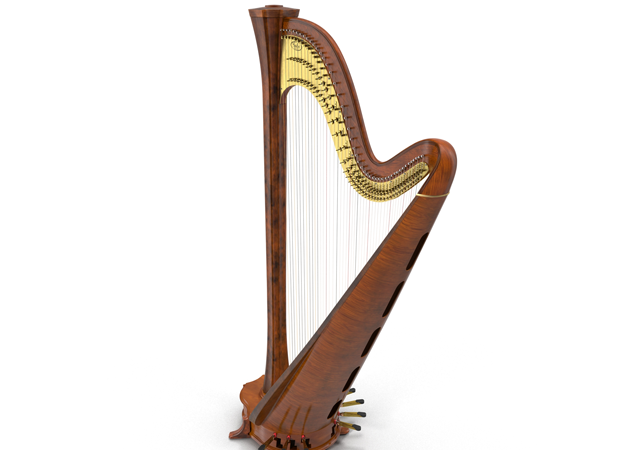 |
Harp The harp is possibly one of the most elegant of all instruments, with a clear tone that's instantly recognisable. As with the bagpipes, there are many types of harp, but the most common in the UK are the concert harp, usually for playing classical music, and the Celtic harp, usually for playing folk music. It's a very versatile instrument, though, and can be used for almost any style of music. |
|
Kalimba or Mbira An instrument found all over Africa in different variations, the mbira became the basis in the 20th century for a westernised version, the kalimba. It's sometimes called the "thumb piano" and consists of tuned metal strips stretched over a wooden frame that can be twanged in sequence with the thumbs to produce a melody. Its ringing tone makes it ideal both for many types of African music and for other forms beyond the continent.
|
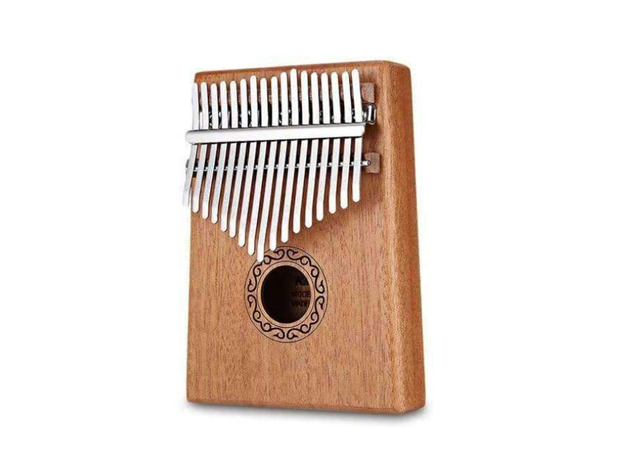 |
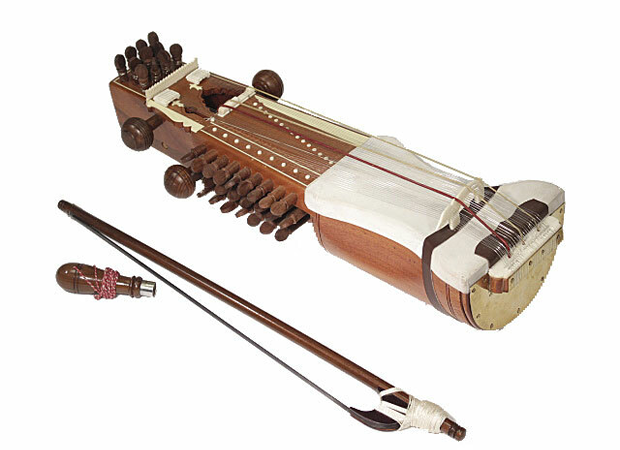 |
Sarangi An Indian fiddle, the sarangi is a bowed instrument with three main strings and several dozen sympathetic strings, all echoing in three sound chambers to give a haunting sound that's very reminiscent of singing. Used extensively in both classical Hindustani music and in Indian folk music, the sarangi's unique tone can also adorn many western styles. |
|
Cimbalom An ancient Hungarian instrument, the cimbalom looks very like the inside of a piano, with more than a hundred strings stretched over an open box and struck with two hammers. Its sound has been compared to a harpsichord and, in spite of its straightforward appearance, it can produce extremely complex music. |
 |
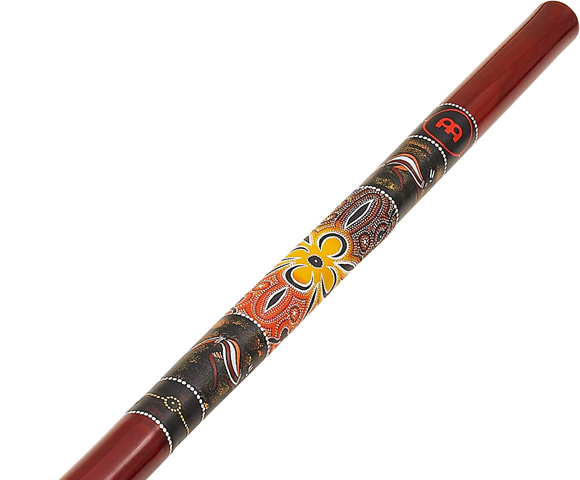 |
Didgeridoo No-one who's heard the didgeridoo can forget the booming notes that evoke the Australian outback. The most famous Aboriginal instrument, it's played by using a circular breathing technique which, besides enabling you to play this apparently simple but complex instrument, gives your general breath control a massive boost. |
|
Nyckelharpa A Swedish instrument, the nyckelharpa is essentially a large fiddle that's played with keys instead of the fingers. Played slung from a strap like a guitar, it combines melodic, drone and sympathetic strings which, when bowed, produce a characteristic sound. Widespread in Scandinavia, the nyckelharpa has begun to find its way into British folk music, as well as rock music across Europe. |
|
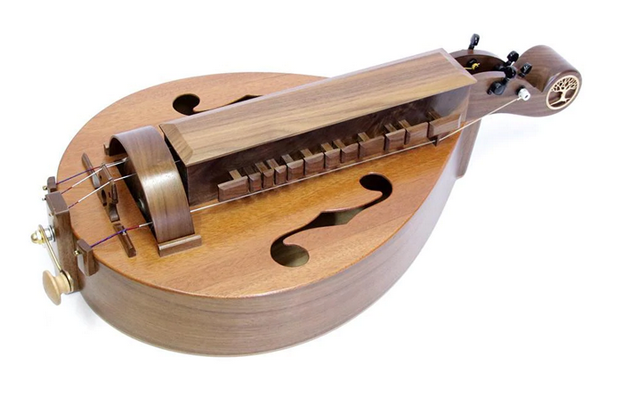 |
Hurdy-Gurdy A bowed and keyed instrument like the nyckelharpa, the hurdy-gurdy is an ancient European instrument that's currently enjoying a surge of popularity. What makes it unique is that its played by a circular bow turned by a handle, giving it a drone and melody sound a little like a string equivalent of bagpipes. A deceptively complex instrument to play, it's become popular in recent years among some rock musicians. |
|
Theremin Most of these instruments are ancient, but the theremin is a 20th century invention. One of the first electronic instruments, it's unique in being played without actually touching the equipment. Your hands manipulate the frequencies emitted by two antennae, bending and altering the pitch to create melodies. Its unearthly sound has been extensively used in horror film scores, but can also enhance anything from an orchestra to a rock band. |
|
As with any instrument, learning with a tutor is ideal — but how will you find a tutor for some of these? Well, although it's certainly not as easy as finding a guitar or piano tutor, it's by no means impossible. Register with TutorExtra to see if you can find a private tutor for your chosen less common instrument

